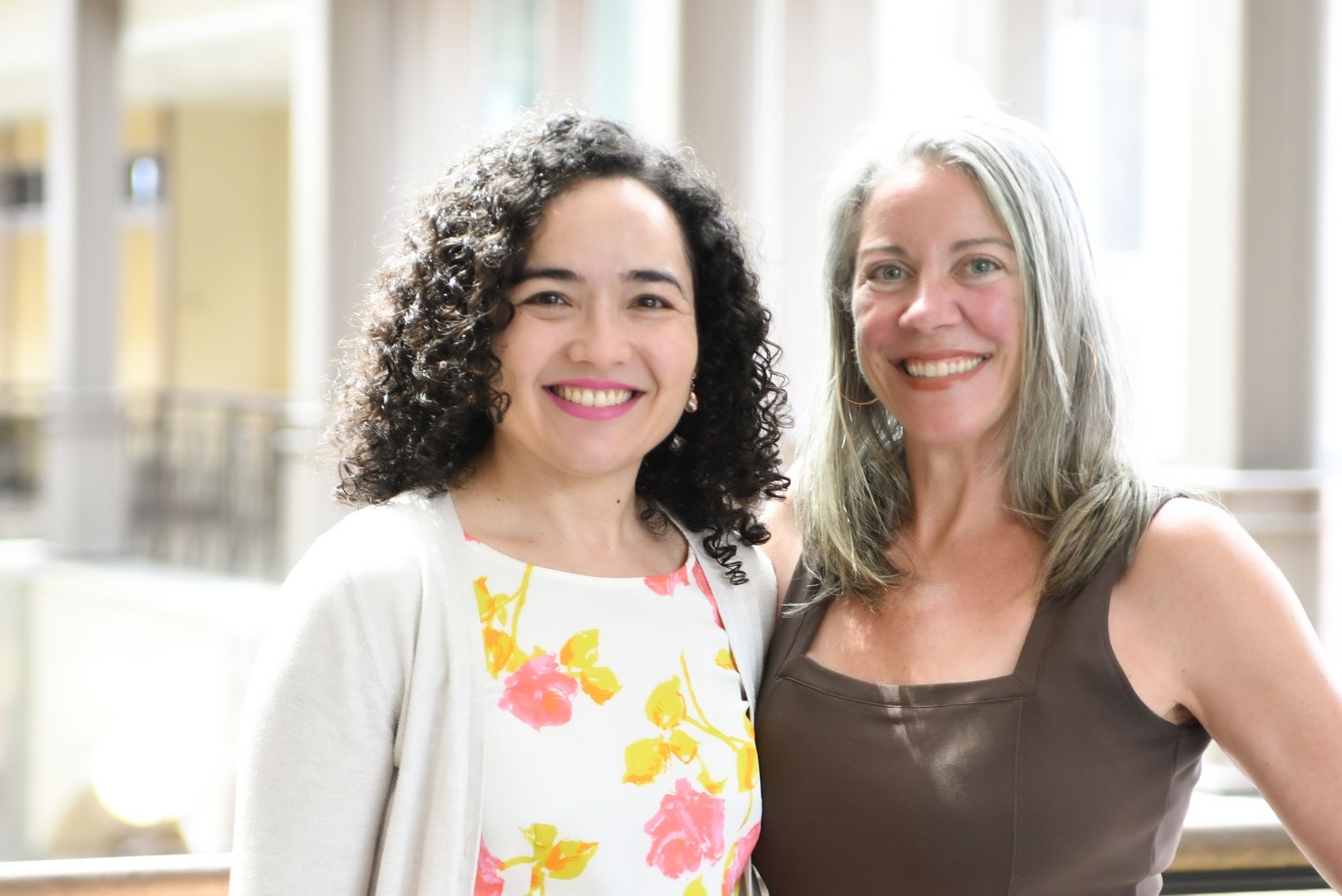
Photo: Krystine Adams/UNCW
Sheri Conklin and Daisy Barreto are conducting research on student perceptions of the impact of Quality Matters (QM) standards on students’ learning and engagement. Dr. Conklin is an associate professor of instructional technology and assistant chair of WCE’s Department of Instructional Technology, Foundations and Secondary Education. Dr. Barreto is an associate professor and coordinator of WCE’s Master of Science in Instructional Technology (MIT) program.
UNCW’s online Master of Science in Nursing – Nurse Educator program recently became the first UNCW program and the third program in the UNC System to receive national recognition with Quality Matters Online Program Design Certification. So far, two courses in WCE’s MIT program have received QM Certification: MIT 510, Design and Development of Instructional Technology and MIT 520, Managing Instructional Development.
“QM is a renowned, non-profit, quality assurance organization that provides that ‘stamp’ of quality assurance and their rubric for course review is designed based on evidence-based best practices for online course design,” Barreto said. “It is prestigious to have a course QM certified, but it is also important to know how to design online courses to support student learning and engagement. Our research focuses on what makes a difference from a student perspective.”
Conklin and Barreto began their QM research in 2022. Nineteen graduate students enrolled in the MIT program completed a survey created based on QM Rubric items. Conklin and Barreto authored an article about their initial research that was published in the American Journal of Distance Education in August 2023.
“We collaborated with UNCW’s Master of Healthcare Administration (MHE) program and also included the Nurse Educator students in the next phase of research,” Conklin said. “So far, results indicate students want clear expectations (rubrics), clear learning objectives and accessibility.”
UNCW is a QM subscriber, and anyone in the UNCW organization can access the QM rubric, Conklin said. Faculty can also enroll in professional development at a lower cost. In addition, UNCW’s Office of Distance Education and eLearning (DEeL) offers a two-week introductory online workshop on applying the QM Rubric for free.
“Using the QM rubric strengthens online programs because you have to provide evidence of program and course alignment, meaning the courses are aligned to program goals,” Conklin said. “Typically, there is a chart or map that clearly depicts the alignment. These standards can help faculty on course organization which consequently will lead to well-designed and conceived courses for students.”
“We integrate the QM rubric in our IT courses to demonstrate the importance of alignment, clarity and ADA compliance,” she continued. “These are important topics which can be applied to any professional development or training our students will design and develop, whether they are working in a university, a K-12 school or a corporation.”
Barreto and Conklin said it’s important to consider student perspectives when designing online courses because the student population is continually changing. They said they expect more institutions – and more faculty members at UNCW - to adopt QM as a standard in the future. Faculty interested in collaborating with them on their ongoing research into student perceptions of QM standards are invited to email Daisy Barreto at barretod@uncw.edu.
About Watson’s Instructional Technology Programs
WCE’s Master of Science in Instructional Technology (MIT) provides a pathway to a high paying career in the $110 billion educational technology industry. Students with a bachelor’s degree in any field are eligible to apply. Courses are fully online, and applied learning opportunities offered throughout the program enable MIT students to develop a professional portfolio of work prior to graduation.
Post-baccalaureate certificate programs in Instructional Technology, Multimedia and Instructional Web Development, and Online Teaching and Learning are also offered. For more information, please visit the Instructional Technology website.
This article has the following tags: Research & Innovation Watson College of Education


